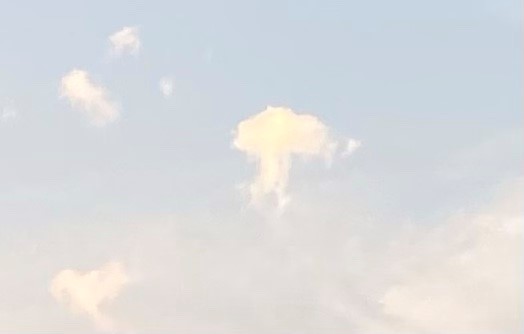 Asia Times
Asia Times By

PESHAWAR- Pakistan authorities face stiff resistance to new freedom-curbing security rules as global tech giants including Google, Facebook and Twitter, threaten to pull out of the country if the restrictive legislation is passed.
Last month, Pakistan’s government introduced the so-called “Removal & Blocking of Unlawful Online Content Rules 2020 (RBUOC)”, which aim to apply new restrictions on the use of the internet and social media services.
The new cyber-rules extend the scope of government control to online material carried on social media and websites, including any information that could “intimidate or harm the reputation of federal or provincial government or any person holding public office.”
The overbroad rules, critics note, do not clearly define what qualifies as “intimidation” and what constitutes “harmful” to the reputation of holders of public office.
Moreover, if social media companies (SMCs) or internet service providers (ISPs) refuse to take down content deemed as objectionable by authorities, the Pakistan Telecommunication Authority (PTA) is authorized to block them outright.
Most significantly, perhaps, the RBUOC rules require Google, Facebook, Twitter, Linkedin, TikTok, YouTube and other international social media platforms to establish permanent offices in Islamabad and set up local servers to store Pakistan-specific data. Any violation of these laws is subject to a fine of more than $3 million.
It marks the second time that authorities have imposed new restrictions on social media platforms in the last nine months. In February, the government tried, but failed, to bring ISPs and SMCs under a digital censorship law known as “The Citizen Protection (Against Online Harm) Rules 2020.”

The federal cabinet approved the law in January to regulate the use of the internet and social media services, which critics claimed was politically motivated. Then, the aim was to deprive opposition parties of social media platforms as promotion tools. The government was also concerned about a critical campaign against civil and military leaders that was gaining popular traction on social media.
Widespread condemnation from SMCs, ISPs, right groups and internet users forced the government into a certain retreat. Although the legislation remained intact on the books, authorities could not put the law into effect due to a massive public uproar and lawsuits filed by civil libertarians.
The rules bar ISPs and SMCs from carrying any blasphemous, religious, defamatory, obscene, pornographic, pedophilic, hate speech, incitement to violence and harmful to national security content that violates the provisions of the Pakistan Electronic Crimes Act (PECA) 2016. PECA is chiefly focused on cybercrimes, cyber terrorism, electronic forgeries and terrorism recruiting, funding and planning.
Critics note that while PECA is focused on overtly criminal behavior, the new rules have been drafted specifically to curb online freedoms and liberties.
Amid the backlash, Prime Minister Imran Khan had assured to initiate a “broad-based” consultation on social media regulations. The freedom of expression stakes are high for Pakistan’s 37 million social media users.
“The ‘broad-based’ consultation promised by Prime Minister Imran Khan in February never occurred,” Asia Internet Coalition (AIC) managing director Jeff Paine said in a press release.
AIC is a Singapore-based industry association dealing with Internet policy issues in the Asia Pacific region comprised of leading internet and technology companies, namely Amazon, Airbnb, Apple, Booking.com, Expedia, Facebook, Grab, Google, LinkedIn, LINE, Rakuten, Twitter and Yahoo, among others.
“The draconian data localization requirements will damage the ability of people to access a free and open internet and shut Pakistan’s digital economy off from the rest of the world,” the release said.
AIC warned that the new rules would make it extremely difficult for its members to make their services available to Pakistani users and businesses because their members cannot in good conscience follow the stringent rules and procedures prescribed in the legislation.

Whether the government backs down again is an open question, particularly as Khan’s government faces a new threat from opposition-led street protests across the country.
But there are signs it will. A Pakistan Telecommunication Authority (PTA) official told Asia Times that Khan’s Pakistan Tehreek-e-Insaf (PTI) government was now concentrated on the opposition movement and likely did not want to open yet another front with global social media companies which have threatened to withdraw if the RBUOC rules are not dropped.
Iqbal Khattak, executive director of a Pakistan-based media development watchdog, Freedom Network, said that the biggest potential victims of the coercive cyber regulations are online free speech and online journalism.
“It is troubling to note that the accumulative effect of the slide in the enforcement of digital rights is contributing to a general closing of online spaces in Pakistan,” Khattak added.
At the same time, critics say PTA has shut its eyes to hate and terror preaching content on the internet.
They note that speeches made by Masood Azhar, head of the Jaish-e-Mohammed and on the UN Security Council’s designated global terrorist list, are still freely available on Pakistan’s internet. Content glorifying the crimes of the leaders of the banned anti-Shiite Sipah-e-Sahaba-Pakistan is also readily accessible.
“PTA has never tried to block these websites but never missed the opportunity to transgress bounds of the freedom of 76 million law-abiding internet users in Pakistan,” said Ehtisham Ul Haq, an internet user in Peshawar.
- 25 April 2024: Caravan To Midnight – The Lost and Found Tribes of Israel
- The NuQleo Boost Smoothie Project! – Stand a chance to win a fabulous CTM hamper & for your creation to be featured in our upcoming NuQleo smoothie book!
- **Become a Caravan to Midnight Member**
- NuQleo – Price $99.00
- Top Advisor to LA DA Gascon Arrested, Allegedly Stole LA Sheriff Deputy Personnel Files
- How Many More Times Will Joe Biden Mention This at the Podium This Year?
- Thousand of Illegal Immigrants With Pounds of Fentanyl Apprehended by Border Patrol
- Pro-Hamas Students Set Up Another Camp… but This Jewish Student Isn’t Cowering
- GOP-Led State Legislature Passes Bill To Criminalize Adults Who Help Minors Receive Gender-Transition Procedures Without Parental Consent
- Man Sentenced To 50 Years In Prison And Physical Castration After Pleading Guilty To Raping, Impregnating 14-Year-Old Girl
- DEVELOPING: Massive Fire Erupts On Famous Pier
- United States Total Fertility Rate Drops To Lowest In Approximately A Century, Report Says
- Pfizer And BioNTech Face Lawsuit Over mRNA Technology, Accused Of Infringing Patents Filed About One Decade Before COVID-19
- Paris Completes Full-Scale Tests For AI Body Scanner Cameras Ahead Of 2024 Olympics
- Boston Dynamics Unveils New Generation Of Humanoid Atlas Robots To Perform All Sorts Of Menial Tasks
- Flame-throwing robot dog Thowflame Thermonator
- Al Jazeera: While the IDF prepares to enter Rafah, several thousand militants continue to operate in northern Gaza
- Wild Video of NYU Protesters Chasing and Surrounding NYPD Shows How Out of Control Things Are Getting
- FDA Finds mRNA COVID Vaccines May Cause Seizures in Toddlers
- Russian programmers play ‘cat and mouse’ game to outsmart censors
- Exclusive: China harbors ship tied to North Korea-Russia arms transfers, satellite images show
- Here’s the Video Exposing What NYU’s Pro-Hamas Students Really Think
- What’s Behind Antisemitic Protests on College Campuses
- 25 April 2024: Caravan To Midnight – The Lost and Found Tribes of Israel
- The NuQleo Boost Smoothie Project! – Stand a chance to win a fabulous CTM hamper & for your creation to be featured in our upcoming NuQleo smoothie book!
- **Become a Caravan to Midnight Member**
- NuQleo – Price $99.00
- Top Advisor to LA DA Gascon Arrested, Allegedly Stole LA Sheriff Deputy Personnel Files
- How Many More Times Will Joe Biden Mention This at the Podium This Year?
- Thousand of Illegal Immigrants With Pounds of Fentanyl Apprehended by Border Patrol
- Pro-Hamas Students Set Up Another Camp… but This Jewish Student Isn’t Cowering
- GOP-Led State Legislature Passes Bill To Criminalize Adults Who Help Minors Receive Gender-Transition Procedures Without Parental Consent
- Man Sentenced To 50 Years In Prison And Physical Castration After Pleading Guilty To Raping, Impregnating 14-Year-Old Girl
- DEVELOPING: Massive Fire Erupts On Famous Pier
- United States Total Fertility Rate Drops To Lowest In Approximately A Century, Report Says
- Pfizer And BioNTech Face Lawsuit Over mRNA Technology, Accused Of Infringing Patents Filed About One Decade Before COVID-19
- Paris Completes Full-Scale Tests For AI Body Scanner Cameras Ahead Of 2024 Olympics
- Boston Dynamics Unveils New Generation Of Humanoid Atlas Robots To Perform All Sorts Of Menial Tasks
- Flame-throwing robot dog Thowflame Thermonator
- Al Jazeera: While the IDF prepares to enter Rafah, several thousand militants continue to operate in northern Gaza
- Wild Video of NYU Protesters Chasing and Surrounding NYPD Shows How Out of Control Things Are Getting
- FDA Finds mRNA COVID Vaccines May Cause Seizures in Toddlers
- Russian programmers play ‘cat and mouse’ game to outsmart censors
- Exclusive: China harbors ship tied to North Korea-Russia arms transfers, satellite images show
- Here’s the Video Exposing What NYU’s Pro-Hamas Students Really Think
- What’s Behind Antisemitic Protests on College Campuses





















